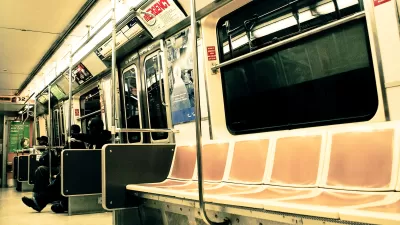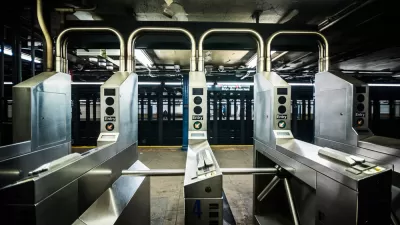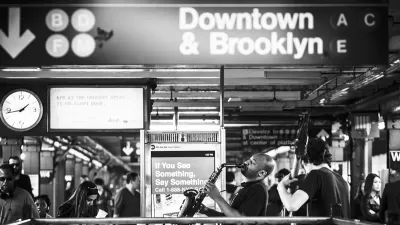Over 1,600 new subway cars may be ordered, a minimum of 200 with open gangways, by the Metropolitan Transportation Authority. The first 500 will be purchased from the Japanese company, Kawasaki, to be assembled in Yonkers and Lincoln, Nebraska.

"The first cars, which will be manufactured under a contract between the Metropolitan Transportation Authority and the Japanese company, Kawasaki, are scheduled to be delivered in July 2020," reports Sarah Maslin Nir for The New York Times on Jan. 19.
The MTA voted Monday to approve the order, reports Matt Olberding of the Lincoln (Nebraska) Journal Star on Jan. 22. A final vote is expected Wednesday.
Kawasaki's Lincoln rail car plant is poised to receive the largest subway car order in its history, the economic effects of which "could be felt for years to come," a local company official said.
The contract is phased, and could "ultimately pay Kawasaki more than $3.7 billion with the financing being provided by the Federal Transit Administration," adds Nir.
At the outset, the authority has committed about $1.45 billion to buy over 500 cars with an agreement to take steps to purchase more if the initial group performs well, for a total of 1,612 cars.
The new cars, designated as R211, will gradually replace the authority’s fleet of over 750 R46 cars which were built between 1975 and 1978....
The award is a blow to the Canadian aerospace and train manufacturer, Bombardier, which was hired to build the city’s last fleet of new cars, but delivered them two years behind schedule," adds Nir.
Open gangway cars
Trains composed of open gangway cars, used in many of the world's busiest subways except those in the U.S., bear resemblance to articulated buses. There are no doors between the cars, enabling passengers to move freely within the train. In addition, they hold more passengers. 200 of these cars will comprise 20 trains, as "[t]hey are built in five-car units; a train will consist of two linked sets, for a total of 10 cars," explains Nir.
If the first group proves successful, then the authority plans to obtain more, even perhaps, the entire rest of the order.
Only one subway in North America uses them — Toronto. Perhaps it is no coincidence that Andy Byford, the new president of New York City Transit, which operates the subway and buses, was the former chief executive of the Toronto Transit Commission.
Riders Alliance, an advocacy group, welcomed the introduction of open gangway cars, but with reservations as new cars won't solve the subway's chronic woes, highlighted when the governor declared a state of emergency last summer.
A slew of new trains does not get at the root causes of the subway’s ills, including the crumbling infrastructure, outdated signaling systems that have to be replaced as well as new ways to pay for it all, said campaign manager Rebecca Bailin.
Also see report on the subway order in Curbed New York.
FULL STORY: New York Set to Acquire the Next Generation of Subway Cars

Maui's Vacation Rental Debate Turns Ugly
Verbal attacks, misinformation campaigns and fistfights plague a high-stakes debate to convert thousands of vacation rentals into long-term housing.

Planetizen Federal Action Tracker
A weekly monitor of how Trump’s orders and actions are impacting planners and planning in America.

In Urban Planning, AI Prompting Could be the New Design Thinking
Creativity has long been key to great urban design. What if we see AI as our new creative partner?

How Trump's HUD Budget Proposal Would Harm Homelessness Response
Experts say the change to the HUD budget would make it more difficult to identify people who are homeless and connect them with services, and to prevent homelessness.

The Vast Potential of the Right-of-Way
One writer argues that the space between two building faces is the most important element of the built environment.

Florida Seniors Face Rising Homelessness Risk
High housing costs are pushing more seniors, many of them on a fixed income, into homelessness.
Urban Design for Planners 1: Software Tools
This six-course series explores essential urban design concepts using open source software and equips planners with the tools they need to participate fully in the urban design process.
Planning for Universal Design
Learn the tools for implementing Universal Design in planning regulations.
Gallatin County Department of Planning & Community Development
Heyer Gruel & Associates PA
JM Goldson LLC
City of Camden Redevelopment Agency
City of Astoria
Transportation Research & Education Center (TREC) at Portland State University
Jefferson Parish Government
Camden Redevelopment Agency
City of Claremont





























